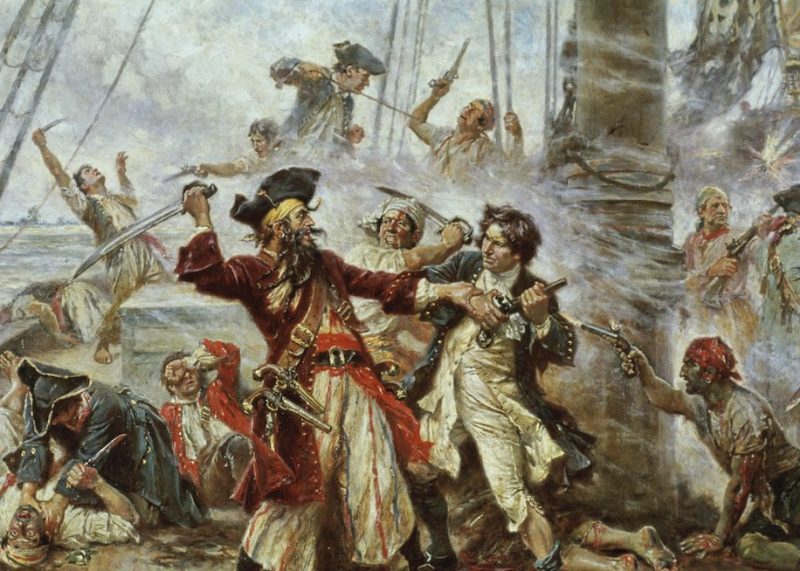
We here at RealClearLife love pirates. We’ve explored movies about them, what their ships were like, and their drink of choice. Yet it seems we may not have really understood pirates at all. Happily, someone has come along to set us straight on their actual history.
Mark G. Hanna, who spent 10 years researching his book Pirate Nests and the Rise of the British Empire, 1570-1740, has revisited pirates for Humanities. He notes that they were often not the feared, swashbuckling, hard-living rogues so frequently celebrated. He writes:
“Pirates could be found in nearly every Atlantic port city. But only particular locations became known as ‘pirate nests,’ a pejorative term used by royalists and customs officials. Many of the most notorious pirates began their careers in these ports. Others established even deeper ties by settling in these cities and becoming respected members of the local elite. Instead of the snarling drunken fiends that parade through children’s books, these pirates spent their booty on pigs and chickens, hoping to live a more placid and financially secure life on land.”
Indeed, he reports that pirates could often be “civil, neighborly, and law-abiding.” For many, the “pirate’s life” was not a irresistible siren song: It was just a way to pay the bills.
So are the popular images of pirates wrong? Technically no, but virtually everything the general public knows about pirates comes from a very specific moment in time:
“Popular culture has invested heavily in the image of pirates as anarchists who speak in colorful language and dress in attire recognizable to any five-year-old. In fact, what we imagine pirates to look and sound like matches only one decade of history: 1716 to 1726. Before that, piracy consisted of a spectrum of activities from the heroic to the maniacal. Many historians, like many pirate fans, write about piracy as a static phenomenon. This is the basis of popular events like International Talk Like a Pirate Day (Sept. 19) or the costume worn by Jack Sparrow. When asked if these common tropes are true, I give a typical historian’s answer: It depends on when and where.”
To learn more about what it actually meant to be a pirate, click here.
This article was featured in the InsideHook newsletter. Sign up now.























